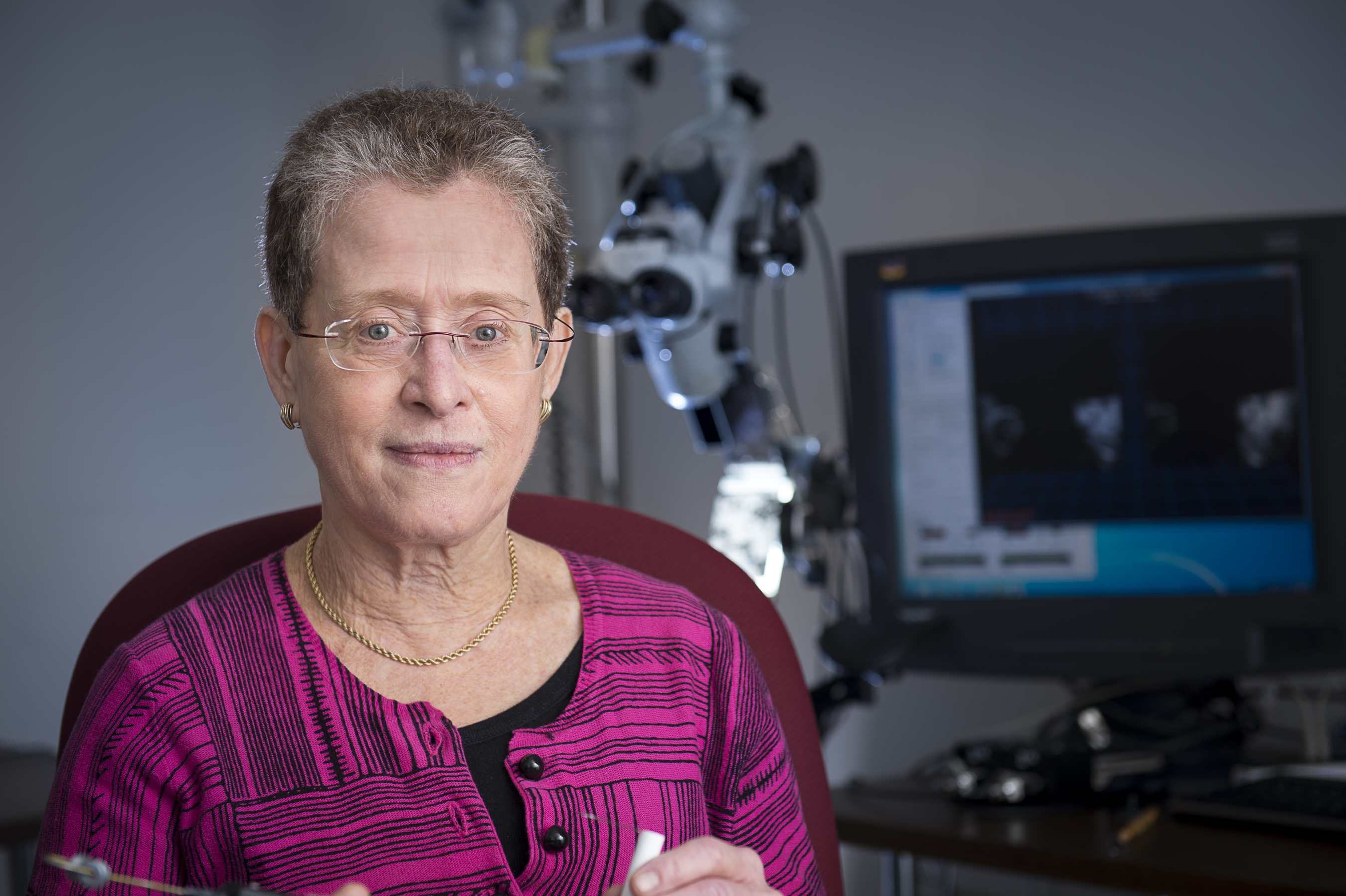IEEE Elects Roberta Klatzky as a 2018 Fellow
Byron SpiceWednesday, November 29, 2017Print this page.

Carnegie Mellon University's Roberta Klatzky, a world-renowned expert in cognition who examines the relationships between human perception and action, with a focus on touch, has been elevated to a fellow in the Institute of Electrical and Electronics Engineers (IEEE), the world's largest technical professional organization.
The IEEE fellow status is a distinction reserved for select members who have demonstrated extraordinary accomplishments in an IEEE field of interest. Klatzky, the Charles J. Queenan Professor of Psychology and a professor in the Human-Computer Interaction Institute, is being recognized for contributions to human visual, auditory and haptic perception in robotics and virtual environments.
Other new IEEE Fellows include Siddhartha Srinivasa, a 2005 alumnus of the Robotics Institute and until recently the Finmeccanica Associate Professor of Robotics. This summer he became the Boeing Endowed Professor at the University of Washington. He is being recognized for contributions to robotic manipulation and human-robot interaction.
Peter Stone, who earned his Ph.D. in computer science at CMU in 1998 and is now professor of computer science at the University of Texas, is being recognized for contributions to reinforcement learning, multiagent systems and robotics. A former Computer Science Department faculty member now teaching at Ecole Polytechnique Federale de Lausanne in Switzerland, Anastasia Ailamaki, also is being recognized by the IEEE for contributions to hardware-conscious database systems and scientific data management
Klatzky, who joined the CMU faculty in 1993 and holds appointments in psychology, the HCII and the Center for the Neural Basis of Cognition, considers her research as a cognitive scientist who focuses on perception to be far from what most people think of as psychology. She investigates perception, action and touch from the perspective of multiple modalities, sensory and symbolic, in real and virtual environments. Her research has been instrumental to the development of telemanipulation, image-guided surgery, navigation aids for the blind and neural rehabilitation.
Byron Spice | 412-268-9068 | bspice@cs.cmu.edu
